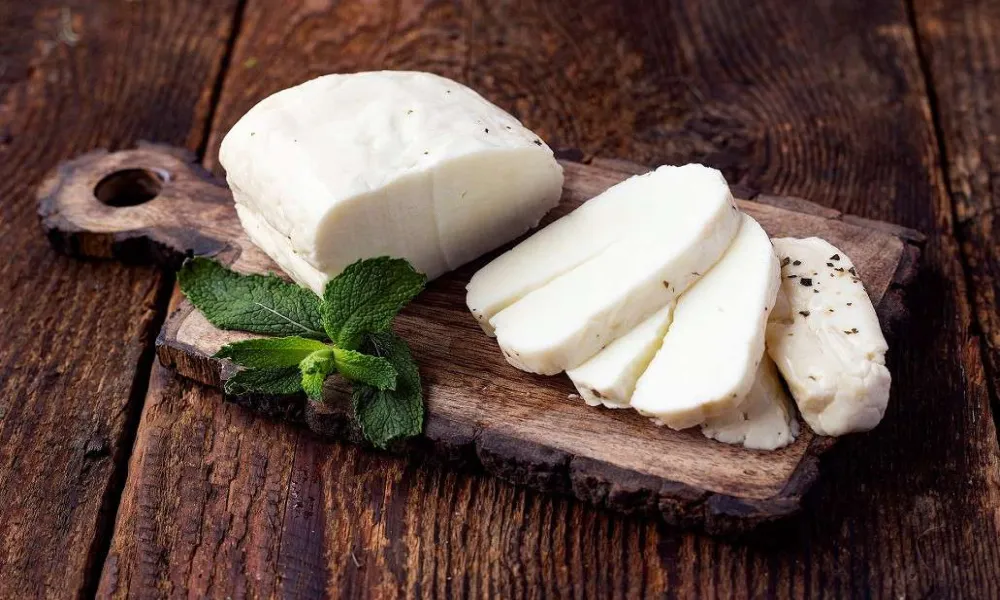As Cyprus struggles to meet its production quota for halloumi under its Protected Designation of Origin (PDO) status, a bitter conflict continues to divide the island’s livestock sector.
On one side, cow farmers argue that sufficient incentives have already been given and that there has been no meaningful rise in goat and sheep milk production. On the other, goat and sheep farmers claim they are being stifled by cow farmers and accuse cheese producers of driving down export prices to unsustainable levels.
Deals and discontent
Speaking to Politis, several goat and sheep farmers alleged that despite doubling production volumes since 2014, their efforts are being undermined. They accuse the state of turning a blind eye while cow farmers import more cattle from abroad, doubling the output of cow’s milk and upsetting the balance required by the PDO regulation.
They insist that the market, not the interests of “five major dairy industries,” should be protected. They also claim that the Minister of Agriculture, under pressure from cow farmers and cheesemakers, has reduced the milk quota percentages to their detriment.
Cheesemakers, however, counter that official data show little real progress in goat and sheep milk production despite years of subsidies and incentives.
“The government has done its part,” one dairy representative told Politis. “If we keep the quota at over 50% goat and sheep milk, we will all suffer. Cyprus must decide whether it wants to preserve halloumi exports, the country’s second-largest export after pharmaceuticals, and request a realistic quota adjustment from the EU.”
Calls to reduce the quota
They stress that if the EU does not approve such an adjustment, the PDO status will remain, but the quota will stay at 51%. “In the first PDO dossier submitted in 2008, there were no fixed percentages. The only requirement was that goat and sheep milk had to be detectable in the final product and that was the most reasonable approach,” they added.
Ultimately, all sides agree that any new quota framework must be practical, compliant, and export-oriented, ensuring the long-term sustainability of Cyprus’s hallmark cheese.
Despite government measures introduced over the past decade, achieving the 50% goat and sheep milk target by July 2029 seems increasingly unlikely.
In a bid to turn the tide, the government recently launched a €60 million agricultural investment scheme, half of which will go towards supporting goat and sheep farmers. The aim is to boost milk production and safeguard the next PDO milestones, and with them, the jobs of roughly 15,000 workers linked to the halloumi industry.
Protecting exports
The gravity of the quota issue became clear earlier this year. In March, Agriculture Minister Maria Panayiotou issued a decree reducing the required proportion of goat and sheep milk in halloumi from 30% to 20% for the period between March and July 2025, and to 15% from August to December 2025.
Explaining her decision, the Minister pointed out that of the 45,000 tonnes of halloumi produced annually, 41,000 tonnes are exported, with 39,000 tonnes classified as “mixed halloumi” under the PDO label.
“These figures show that exports are the backbone of production and must be protected,” she said. “Otherwise, total annual output could fall by up to 40%, jeopardising the viability of the entire sector.”
The long road to PDO status
Halloumi’s PDO journey spans decades. The first application was filed with the EU in 2008, withdrawn in 2012, and re-submitted in 2014. Official recognition came in October 2021, giving Cyprus the legal right to protect its most famous export.
The dossier will be re-evaluated in 2029, with compliance, transparency, and unified management deemed crucial to maintaining the PDO. Without strict controls, Cyprus risks losing its designation, a blow that would have devastating economic consequences.
Government statistics show a gradual increase in goat and sheep milk output:
-
2012: 50,000 tonnes
-
2020: 73,000 tonnes
-
2024: 86,000 tonnes
While production rose marginally in 2024 (sheep milk up 7%, goat milk down 4%), exports continued to soar.
In 2024, Cyprus exported 42.4 million kilograms of halloumi, valued at €323.9 million — up from €313.3 million in 2023. About 45–50% of exports go to the United Kingdom, followed by Sweden with 3,200 tonnes.
Oversight and monitoring
Recognising the growing tensions, the government recently established a Monitoring Committee comprising the Minister of Agriculture, dairy producers, farmer organisations, senior officials, and the Cyprus Chamber of Commerce and Industry (KEVE).
The committee has drawn up a roadmap to address key challenges in halloumi production and trade. Target markets include Australia, the UAE, and Japan, where Cyprus aims to secure halloumi’s inclusion in new trade agreements.
Only cheese produced in Cyprus can legally carry the halloumi PDO label, whether sold as folded, sliced, cubed, or grated. Production elsewhere in the EU is prohibited, and the government continues to fight imitation products in third countries.
Transparency and control
Since October 2024, all dairies have been required to log milk quantities through a digital tracking system to ensure transparency regarding the proportion of goat and sheep milk in each batch.
Agriculture Minister Panayiotou recently told Parliament that strict inspections are being conducted across production, retail, and export stages, in coordination with the Health Services, State General Laboratory, and Ministry of Commerce.
In 2025 alone, nine official inspections and 22 sample tests were carried out, leading to the seizure of three non-compliant batches. Additionally, over 250 export checks were conducted by September, with six violations reported in four countries via the EU’s Rapid Alert System for Food and Feed (iRASFF).
The Ministry has also partnered with TEPAK University and the State General Laboratory on a new programme to detect milk powder and build a sample bank, designed to strengthen scientific defences against fraud and imitation.
